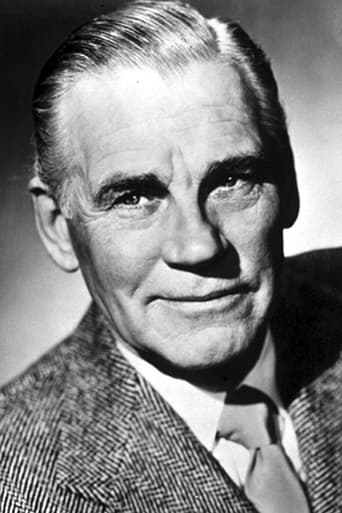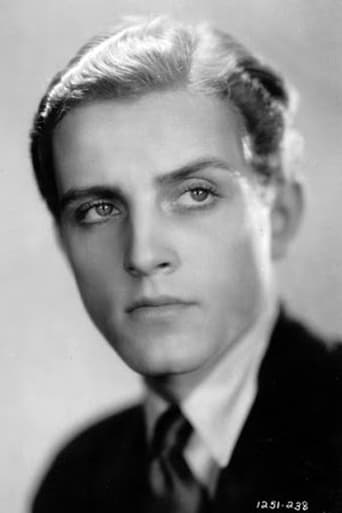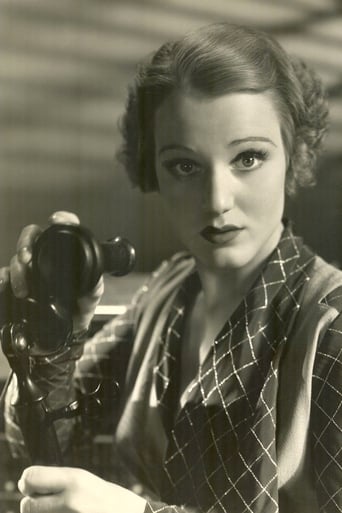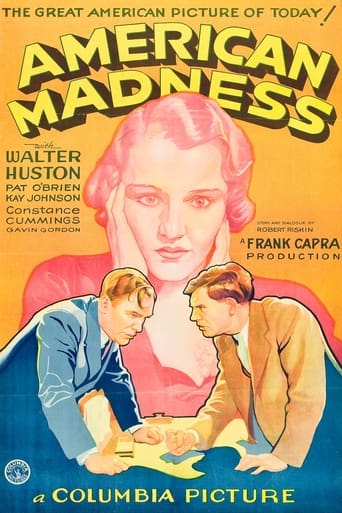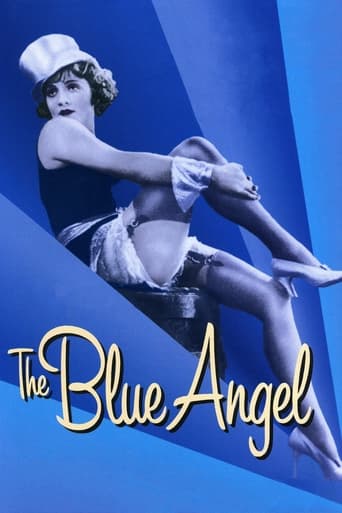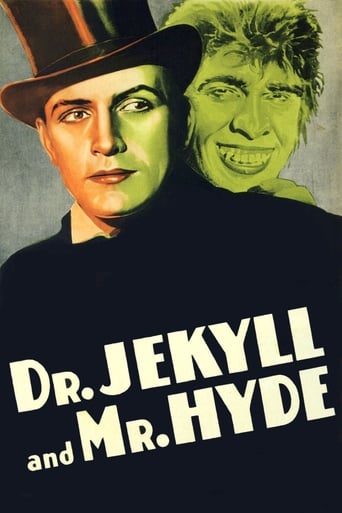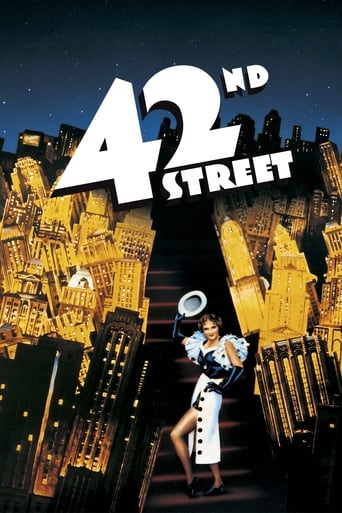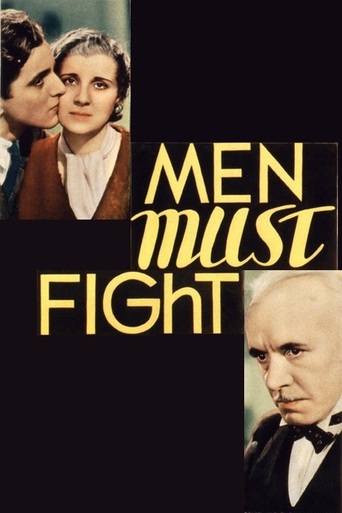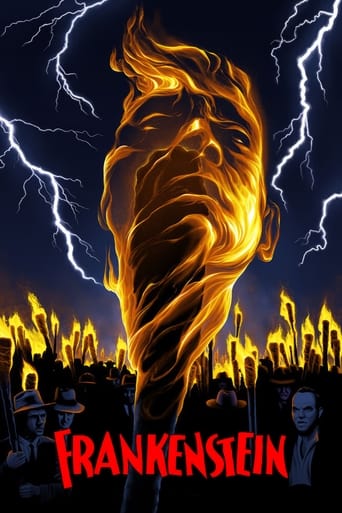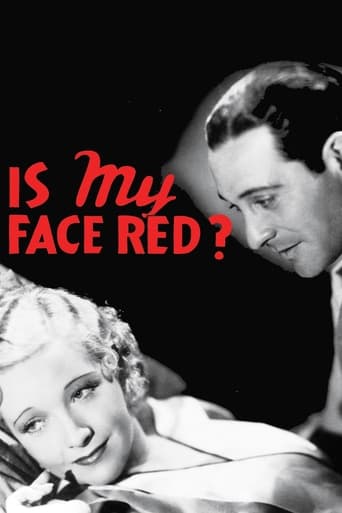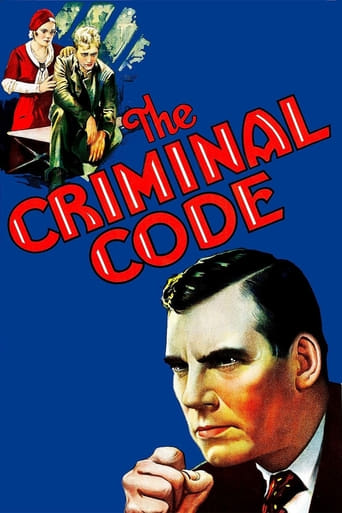
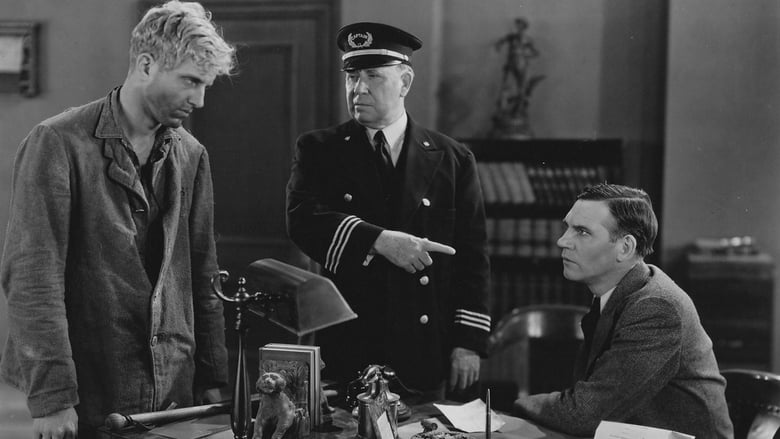
The Criminal Code (1931)
After young Robert Graham commits a murder while drunk and defending his girlfriend, he is prosecuted by ambitious Mark Brady and sentenced to 10 years. Six years later, Brady becomes the prison warden and offers the beleaguered Robert a job as his chauffeur. Robert cleans up his act, but, on the eve of his pardon, his cellmate drags him back into the world of violence, and he faces a difficult choice that could return him to prison.
Watch Trailer
Cast


Similar titles
Reviews
hyped garbage
Good start, but then it gets ruined
Admirable film.
Actress is magnificent and exudes a hypnotic screen presence in this affecting drama.
The Criminal Code explores the issue of turning a normal person who made a mistake into a criminal through time spent in prison and ends up abiding by the criminal code itself. The same subject matter is also explored in the movie Caged made 19 later; nothing seems to change. Robert Graham (Phillip Homles) is a sheltered pretty boy who got a rotten break (similar to Robert Montgomery in The Big House). However unlike Montgomery in The Big House, Graham is put in a cell with two guys (including Boris Karloff's Galloway) who look out for him. Although you do have to suspend your disbelief a bit over the movie fast forwarding six years and Graham not being remotely criminalised within that time. Among the film's examination of the American legal and penal system, Walter Huston explains how it would be possible for someone to get off the hook for a crime such as manslaughter; "A year's delay, a new trial, the witnesses would fade away, they always do, the whole mess would get cold, the paper's would have something else to yap about. I'd get him off; he'd never serve a day". Great thought provoking stuff.Walter Huston plays the warden of the unnamed prison. He is stern but fair and a real "Yes sir!" type as evident from his first appearance with the manner in which he addresses a female witness ("Never mind that, pull down the shade"). The man is one lightening fast talker who can interrogate like a boss but his greatest of moment on badassery comes from the scene in which he goes into the prison yard to confront protesting, yammering prisoners face to face without any guards. Just look at the way he walks into the yard and lights up a cigar. As he approaches the prisoners the yammering stops and they don't lay a hand on him. Simply put, this guy is badass. Perhaps unrealistically so but that's why we have movies.The Criminal Code was Boris Karloff's first significant screen role in the part of Galloway. With his dominating, tall, lanky figure he steals the show; his monologue on why's he's in the slammer with the shadows across his face is hair raising stuff. Galloway has a vengeance with a guard named Gleason which gives the film some dark comic relief such as the two awkwardly passing each other on the stairs to Karloff's recurring use of the lines "I don't like you" and "I got an appointment with you". Likewise the other memorable cast member, albeit in a very brief role is Andy Devine who is very hard to miss with that highly distinctive voice of his.The Criminal Code uses the same set created for MGM's The Big House released the year before. With its more intricate cinematography the film doesn't capture the sense of claustrophobia seen in The Big House but still captures the mundanity of prison life. As an early talkie there is no music present in The Criminal Code but rather the sound of prisoners marching along with various other sound effects are just as effective as any music score could be. The Criminal Code is also host to one of the most shocking moments in pre-code cinema (and was even featured in Karloff film Targets from 1968). When Galloway chases a squealer into a room while yammering is going on in the background from the prison yard, Galloway walks into the room with the squealer cornered as he slowly closes the door as the squealer looks on in terror. What happens next is up to the viewer's imagination.
Another Overrated Howard Hawks Film. Here are Two Examples when that "Hawksian" Touch just about makes the Movie Unbearable. First in the Opening Scene Two Policemen are Playing Cards and one loses 42 cents. They are Called Out on a Case, They Argue about 42 cents in the Police Station, out the door, in the car, out of the car, and into the Crime Scene. This is not Entertaining, Funny, or Natural. It is Howard Hawks just being His Obnoxious Self.The Second Thing. He Allows Walter Huston to say "Yeah" Every time He Opens His Mouth. He Prefaces Sentences with "Yeah", He Ends Sentences with "Yeah", He says "Yeah" in the Middle of Sentences, and He says "Yeah" just for Emphasis. This is Hawks Once Again Annoying Audiences with His Style Until They Scream for Relief.The Rest of the Movie is Not Bad. Boris Karloff Steals the Show as a Truly Scary Looking Inmate and some of the Mugs in the Yard are some Hard Bitten Characters (No Blacks). The Film is Talky and some of the Conversations go on for Ever and the Dated Dialog Deliveries can be Cumbersome at Times, but Overall it is Worth a Watch for an Example of Early Hollywood despite Everything the Director does to Drive You Away.
Forgotten today, despite being directed by the well regarded Howard Hawks, "The Criminal Code" is a 1931 crime film starring Walter Huston as a District attorney who convicts a young law intern (Phillips Holmes) for ten years. As he feels guilty, Huston later offers the recently-released young man work as a valet.Based on Pulitzer Prize winner Martin Flavin's stage play, the film's title has a double meaning, referring both to a district attorney's law-book and the "code of the streets", the unwritten, unspoken codes to which criminals adhere. Much of the film thus finds these two rule books clashing, Walter Huston playing a by-the-books attorney, and the legendary Boris Karloff playing his mirror image. Caught between them is Holmes' character, who must choose between loyalty to the prison yard and loyalty to his new benefactor.The film sports fine, raw performances by Phillips Holmes and Constance Cummings, but is mostly thin and theatrical. Hawks preferred to remain uncredited for his work here.7.9/10 – Worth one viewing.
Although when Howard Hawks died in 1977, his reputation was described as legendary, when he was actually making movies he was often referred to as a good all round director, specialising in men's movies ie "The Dawn Patrol" and "Red River". "The Criminal Code" is one of his lesser known films (maybe because he was uncredited as director). It is simply a superlative film that is dominated by powerhouse performances by Walter Huston, Phillips Holmes and Boris Karloff. Holmes acting was occasionally flat in films but when he was given the right role he was fantastic as he definitely was here. "The Criminal Code", which opened on Broadway in 1929 and lasted a very respectable 179 performances, was another acting honor for Walter Huston. He plays Mark Brady, a wiley District Attorney, who finds himself Warden of the State Prison, populated by many of the men who he had "sent up". One of these is Robert Graham, sent to prison for 10 years for manslaughter only because Brady feels compassion for Robert ("do they ever call you "Bob") knowing he killed in self defence.After six years Robert is at breaking point - he is desperate to experience freedom and when his cell mate talks of escape Robert wants to go with him. When Adams becomes Warden, on the doctor's advice that he sees something fine in Robert, Adams takes him out of the jute mill and puts him to work as a chauffeur. Within three months, with the help of Mary (Constance Cummings) the Warden's daughter, Robert is "mended". The escape still goes ahead, without Robert, but is thwarted , thanks to a stool pigeon, Runch (Clark Marshall). When Runch is killed, the officers and Warden try to break Robert, who saw the murder, but he is standing by the criminal code - not the book that happens to be Adam's bible but the code of the criminal, that he will not rat on his comrades.I felt that Walter Huston's best scenes were - 1. when he was interviewing Robert's dance partner (Mary Doran) and with a few "yeahs" and "you don't say" strips off her innocent facade to expose her as the floozie she is. 2. On his first day braves a "yammering" from the hostile men to walk into the prison yard. Boris Karloff seemed to have more a variety of roles in the early 30s. Here he plays a menacing but essentially decent criminal albeit with a grudge, who from the first tries to help Bob. An unintentionally funny scene occurs when he is serving tea to Mary's aunt(?). She says something about "not creeping up on her like that" and he replies "Sorry Madam" in his best Frankenstein's Monster voice. Apparently James Whale saw Boris Karloff in "The Criminal Code" and thought he would be the perfect Monster!!! Constance Cummings was excellent in her first film, even though the film essentially belonged to the three male stars. She played her role in a very understated way and she was noticed.Highly, Highly Recommended.


